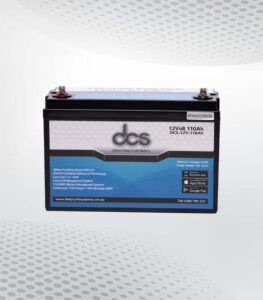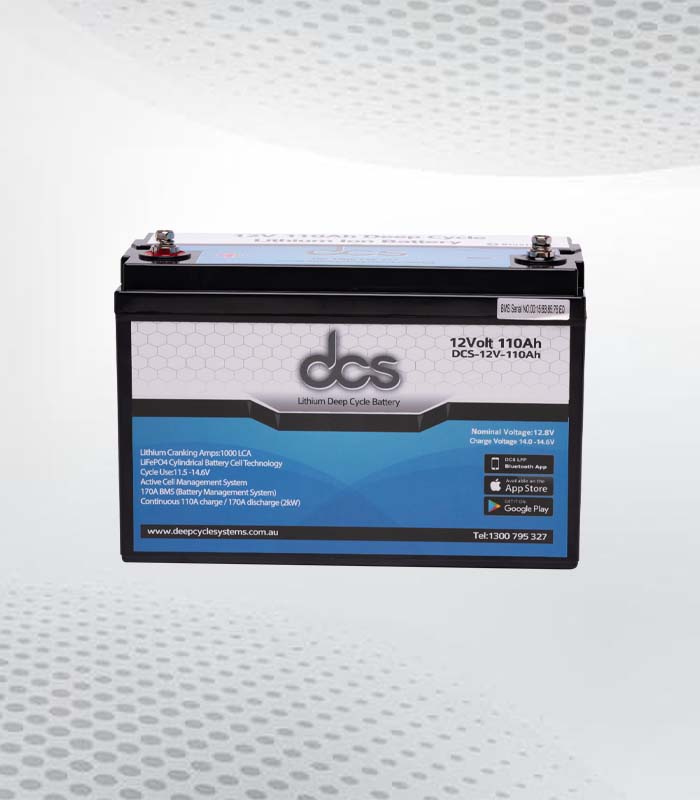In this modern age where sustainability and eco-friendliness are becoming increasingly important, the use of solar energy has gained significant traction. One of the key components of a solar-powered system is the solar system battery. This revolutionary technology allows individuals to harness and store solar energy for later use, making off-grid living a viable and efficient option.
Understanding the Basics of a Solar-powered System Battery
At the heart of any solar-powered setup lies the solar battery system, a critical component that stores the sun’s energy for later use. These batteries function by collecting energy produced by solar panels during daylight hours. This energy can subsequently be utilised to power a variety of devices and appliances in the absence of sunlight, notably during nighttime or overcast days.
Lithium-ion batteries are predominantly employed for this purpose due to their superior energy density and longevity compared to other types. They are intricately connected to the solar panels via a charge controller. This device plays a pivotal role in managing the energy flow, safeguarding the battery against potential damage caused by overcharging or excessive discharging.
Understanding the operational mechanism of these batteries is essential for anyone considering the transition to solar power, as it lays the foundation for harnessing and optimising solar energy effectively. It is this technology that empowers individuals to embrace a sustainable lifestyle, providing a reliable source of power while contributing to the reduction of carbon emissions.
Engaging with the intricacies of how a solar battery system integrates within the broader context of a solar power setup is the first step towards unlocking the full potential of solar energy.
The Advantages of A Portable Solar Battery for Outdoor Enthusiasts
For those passionate about the great outdoors, whether it be trekking through rugged landscapes or setting up camp in remote wilderness areas, the advent of portable solar battery represents a leap forward in outdoor adventure technology.
These compact devices offer a sustainable and efficient method of ensuring that all necessary gadgets remain charged, regardless of one’s proximity to conventional power sources. Portable solar batteries shine particularly brightly for enthusiasts who find themselves in locations where sunlight is plentiful, but power outlets are non-existent.
The charm of these devices lies in their ability to absorb solar energy throughout the day, storing it for when it’s needed most. This means that, as night falls or when venturing into less sunny areas, the stored energy can be utilised to recharge essential devices such as smartphones for safety, cameras for capturing breathtaking moments, or GPS devices to navigate the wilderness.
Furthermore, their lightweight and durable design make them an indispensable tool in any adventurer’s kit, adding minimal weight but offering maximum utility. Additionally, the environmental aspect cannot be overstated. By opting for a renewable energy source, outdoor enthusiasts contribute to reducing the carbon footprint associated with traditional battery charging methods.
This alignment with the principles of Leave No Trace ensures that the natural beauty enjoyed today can be preserved for future generations. Portable solar batteries, thus, not only provide practical benefits but also reinforce the commitment of outdoor enthusiasts to environmental stewardship.
Exploring Solar External Battery and Its Applications
A solar external battery, often referred to as a portable power bank, is designed to meet the needs of those constantly on the move. This innovative device serves as a compact, mobile energy storage unit that can be replenished with solar power throughout the day.
Its primary function is to offer a reliable source of electricity for charging a variety of electronic devices when conventional power sources are unavailable. Particularly advantageous for individuals embarking on outdoor activities, such as camping, hiking, or extended travel, solar external batteries ensure that essential gadgets, like mobile phones, cameras, and tablets, remain operational.
The usefulness of these devices extends beyond mere convenience. In situations where emergencies or unexpected events occur, having a charged solar-external battery can prove indispensable, providing a lifeline by keeping communication devices powered. Furthermore, their design incorporates multiple charging ports, catering to the simultaneous charging needs of several devices. This versatility makes them an ideal companion for groups or families travelling together.
Venturing into more innovative applications, solar external batteries are also increasingly being used in remote work settings, offering a power solution for digital nomads who seek to blend their professional obligations with a love for travel and exploration.
Their lightweight nature and high energy capacity, coupled with the sustainable aspect of utilising renewable solar energy, position solar external batteries as an essential tool in the modern-day adventurer’s arsenal, facilitating a seamless blend of connectivity, convenience, and conservation.
Choosing the Solar Battery Suppliers for Quality and Reliability
Selecting the solar battery suppliers is a decision that should not be taken lightly. It is imperative to opt for suppliers who are not only well-established within the industry but also have a reputation for delivering products of the highest quality and reliability. Investigating the supplier’s history and their commitment to innovation and sustainability can provide valuable insights into the quality of their offerings.
Look for reviews and testimonials from previous customers to gauge the level of satisfaction with the product and customer service. It’s also advisable to examine the warranties provided, as they can be a testament to the confidence suppliers have in their products. A comprehensive warranty can offer peace of mind, ensuring that your investment is protected over time.
Equally, customer support is an important aspect to consider. A supplier that offers robust after-sales support can be invaluable, particularly if you encounter any issues or require guidance on optimising the performance of your solar-powered system battery.
Engaging in discussions with potential suppliers can also reveal their level of expertise and willingness to understand your specific needs, enabling a more tailored approach to selecting the right solar battery system for your requirements. Taking the time to thoroughly vet suppliers based on these criteria can significantly enhance the likelihood of a satisfactory and enduring solar energy solution.
The Role of Solar System Batteries in Achieving Off-Grid Living
Solar system batteries are essential in the world of off-grid living, enabling a lifestyle that is both self-sufficient and environmentally friendly.
These batteries act as the backbone for storing excess energy generated during the day, ensuring a constant supply of electricity even when the sun isn’t shining. This capability is crucial for those who want to live independently of the conventional power grid, providing a sense of freedom and autonomy that is hard to match.
The transition to off-grid living is made easier with solar system batteries, as they allow individuals to maintain their daily activities without interruption, promoting a sustainable lifestyle that utilises renewable energy. By enabling the efficient use of solar power 24/7, these batteries support a greener, more sustainable way of life, free from the limitations and environmental impact of traditional energy sources.
Their role in off-grid living not only highlights the advancements in renewable energy technology but also emphasises a growing movement towards energy independence and ecological responsibility.
How to Maintain Your Solar Battery System for Longevity and Efficiency
Ensuring the enduring functionality and efficiency of your solar battery system requires a commitment to regular maintenance practices. One crucial step is the periodic cleaning of solar panels. Dust, leaves, and other forms of debris can accumulate on the panels, significantly obstructing the absorption of solar energy. By keeping the panels clean, you can maximise the energy harvested during sunny days.
Additionally, the integrity of battery connections is paramount. Loose or corroded connections can lead to inefficiencies and potential system failures. Inspecting these connections regularly and addressing any signs of wear or corrosion promptly can prevent such issues.
The charge controller, a component that regulates the flow of energy to and from the battery, also demands attention. Ensuring it functions correctly is vital for protecting the battery from overcharging or deep discharging, both of which can diminish its lifespan and performance.
Monitoring the battery’s state of charge is another key aspect of maintenance. Utilising a battery management system (BMS) can help in keeping track of charge levels, thus avoiding scenarios where the battery is either overcharged or excessively depleted. Implementing these maintenance steps not only prolongs the life of your solar-powered system battery but also ensures it operates at peak efficiency, delivering reliable solar power to meet your needs.
The Environmental Impact of Switching to Solar System Batteries
Adopting solar system batteries marks a pivotal shift towards more sustainable energy practices, underpinning a significant reduction in the environmental degradation linked with conventional energy sources.
These batteries, integral to solar energy systems, facilitate a decrease in the use of fossil fuels, which are notorious for their contributions to greenhouse gas emissions and global warming. The transition to solar-powered batteries thereby fosters a notable decrease in carbon emissions, aiding in the global efforts to combat climate change.
Moreover, the shift away from traditional energy sources to solar batteries helps in mitigating air and water pollution. The extraction and burning of fossil fuels are primary contributors to air pollutants that endanger public health, such as particulate matter and nitrogen oxides.
Furthermore, solar system batteries support the principles of a circular economy. Many of these batteries, especially those based on lithium-ion technology, are designed with the potential for recycling in mind. This approach not only extends the useful life of the materials used in the batteries but also reduces the need for raw materials, thus lessening the environmental impact associated with mining and resource extraction.
 In embracing solar system batteries, individuals and communities take a decisive step towards fostering a more sustainable and environmentally conscious energy future, aligning with broader goals of reducing ecological footprints and promoting planetary health.
In embracing solar system batteries, individuals and communities take a decisive step towards fostering a more sustainable and environmentally conscious energy future, aligning with broader goals of reducing ecological footprints and promoting planetary health.
FAQs
How costly are solar system batteries to install initially?
The initial outlay for solar system batteries might seem steep, yet they provide substantial returns and benefits through enhanced energy efficiency and environmental sustainability over time. The investment becomes cost-effective when considering the long-term savings on energy bills and the reduction in carbon footprint.
What is the expected lifespan of solar system battery?
The lifespan of solar system battery typically ranges between 5 to 15 years. This duration is influenced by factors such as the frequency of use and the diligence in adhering to maintenance routines. Through conscientious maintenance, it’s possible to extend the operational life of these batteries, ensuring they deliver optimal performance for as long as possible.
Is it feasible to integrate solar system battery with grid-tied systems?
Absolutely, integrating solar system battery with grid-tied systems is not only feasible but also beneficial. This setup allows for the storage of surplus energy generated, which can be utilised during power outages or at times when the grid cannot meet the energy demand, thereby enhancing energy security and independence.
Conclusion
Embracing solar system battery signifies a forward leap towards sustainable, off-grid living, encapsulating both the essence of freedom and environmental stewardship. Their introduction into our daily lives heralds a new era of energy independence, empowering individuals and communities to leverage renewable resources. While challenges in terms of initial investment and maintenance exist, the long-term benefits—ranging from cost savings to a reduced ecological footprint—make solar batteries an invaluable component in the pursuit of a greener future.
| Other Good Articles to Read |
| niche blogs connect |
| blogs 97 |
| Blog Stitution |
| blogs unplugged |
| blogs cotch rouge |
| blog signatr |
| blog sintonias |
| blog zilla |
| consumer forums |
| finance forums |
| g blogs |
| too blog |
| Related Business Listings |
| Directory Submissions |
| Regional Directory |



